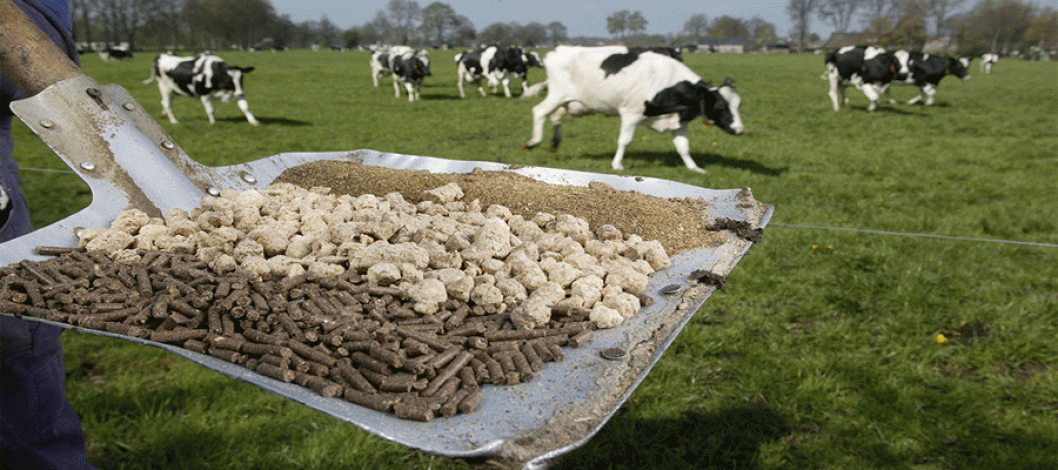
File Photo
Cattle need a balanced diet with adequate amounts of energy, protein, water, minerals, and vitamins to maintain health and productivity. The specific requirements vary based on factors like age, weight, stage of production (e.g., growing, finishing, pregnant, lactating), and environmental conditions.
Here's a breakdown of key nutritional requirements:
Energy:
Carbohydrates: Cattle derive most of their energy from carbohydrates found in forages (grass, hay) and grains.
Fats: While fats are a source of energy, they should be limited, especially in roughage-based diets (less than 5% of dry matter), as they can interfere with fiber digestion.
Protein:
Crude Protein (CP): A measure of the total protein content in feed, which is then adjusted for digestibility and availability to the animal.
Amino Acids: Proteins are made up of amino acids, which are essential for growth, milk production, and other bodily functions.
Nitrogen: Laboratories measure nitrogen content to estimate crude protein using the formula: CP = %N x 6.25.
Adjusted Crude Protein: This is the crude protein adjusted for animal availability, as some proteins can be bound to fiber and are unavailable, especially in heat-damaged forages.
File Photo
Water:
Essential Nutrient: Water is crucial for temperature regulation, growth, reproduction, lactation, and metabolic functions.
Intake Varies: Water intake is influenced by factors like pregnancy, lactation, activity level, diet, and environmental temperature.
Minerals:
Macrominerals: Calcium, phosphorus, magnesium, potassium, sodium, chlorine, and sulfur are needed in larger quantities and are often expressed as a percentage of dry matter.
Microminerals: Chromium, cobalt, copper, iodine, iron, manganese, selenium, and zinc are needed in smaller amounts and are usually expressed in parts per million (ppm).
Functions: Minerals play vital roles in bone formation, nerve function, energy metabolism, and milk production.
Vitamins: Fat-soluble and Water-soluble: Cattle require a variety of vitamins, including A, D, E, and B vitamins, for various metabolic processes.
Other Important Considerations:
Feed Quality: The quality and nutritional value of forages and other feedstuffs significantly impact cattle health and performance.
Digestibility: Nutrient digestibility varies based on feed composition and processing. For example, high Neutral Detergent Fiber (NDF) can reduce feed intake and digestibility.
Ration Formulation: Producers need to formulate rations that meet the specific nutritional needs of their cattle, taking into account factors like dry matter intake (DMI) and nutrient requirements.
Consultation with Experts: It's often beneficial to consult with nutritionists or veterinarians to develop balanced feeding programs for cattle.
Source: Online/GFMM
Comment Now